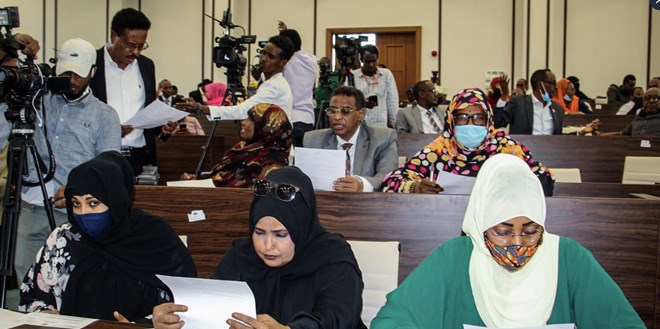
Wednesday March 9, 2022

The chair of the Somali Women Association, Batulo Ahmed Gaballe, does not have much to celebrate this International Women’s Day.
Somali Prime Minister Mohamed Roble appointed her to spearhead efforts to reach a 30 percent quota for women lawmakers in the country’s long-delayed indirect, parliamentary elections.
But as the world marks the global holiday celebrated annually on March 8, female candidates have secured only half the needed seats to reach the quota.
Gaballe says the way the elections took place is different from what was agreed upon, as well as the procedure for the plan's implementation. Gaballe said each community with three or more seats should have allocated one seat for the women’s quota.
But some clan elders, who play a key role in selecting potential lawmakers, have been blocking women from seeking office.
Out of the 275 seats for Somalia’s Lower House, clans have so far selected only 44 women.
They would need to choose another 40 women by March 15 to meet the 30 quota, but only 65 seats remain to be filled.
Gaballe said reaching the 30 percent quota at this point is very unlikely.
Many women who were prepared to run in the elections were rejected, Gaballe said. She added that the problems were created by state election commissions and regional presidents who chose to break the law.
The spokesman for Somalia’s Federal Indirect Elections Team, Ahmed Safina, argued that the electoral body has done its best.
He maintains that 30 percent of the seats should be allocated to women only, and that women could then also compete for the remaining 70 percent of the seats, just as men do.
Aisha Omar Geesdiir is competing for a seat in Somalia’s south-central Hirshabelle state. She said traditional beliefs means women are not viewed as leaders of their clan, but instead as being under their husband’s clan.
She said another challenge is that her children are not viewed as being from her clan.
Men have always dominated politics and power in Somalia, a country still recovering from years of civil war and battling terrorism.
Somalia’s elections were to take place a year ago but fell into turmoil after President Mohamed Abdullahi Mohamed and his allies pushed a term extension through parliament.
The move was repealed after deadly clashes in the capital, Mogadishu, and under international pressure.
Somalia’s elections have since been delayed several times because of political wrangling between the president and prime minister, the last time on Feburary 25.
If completed by the new deadline of March 15, the lawmakers chosen by clan delegates will then pick the next president of Somalia.